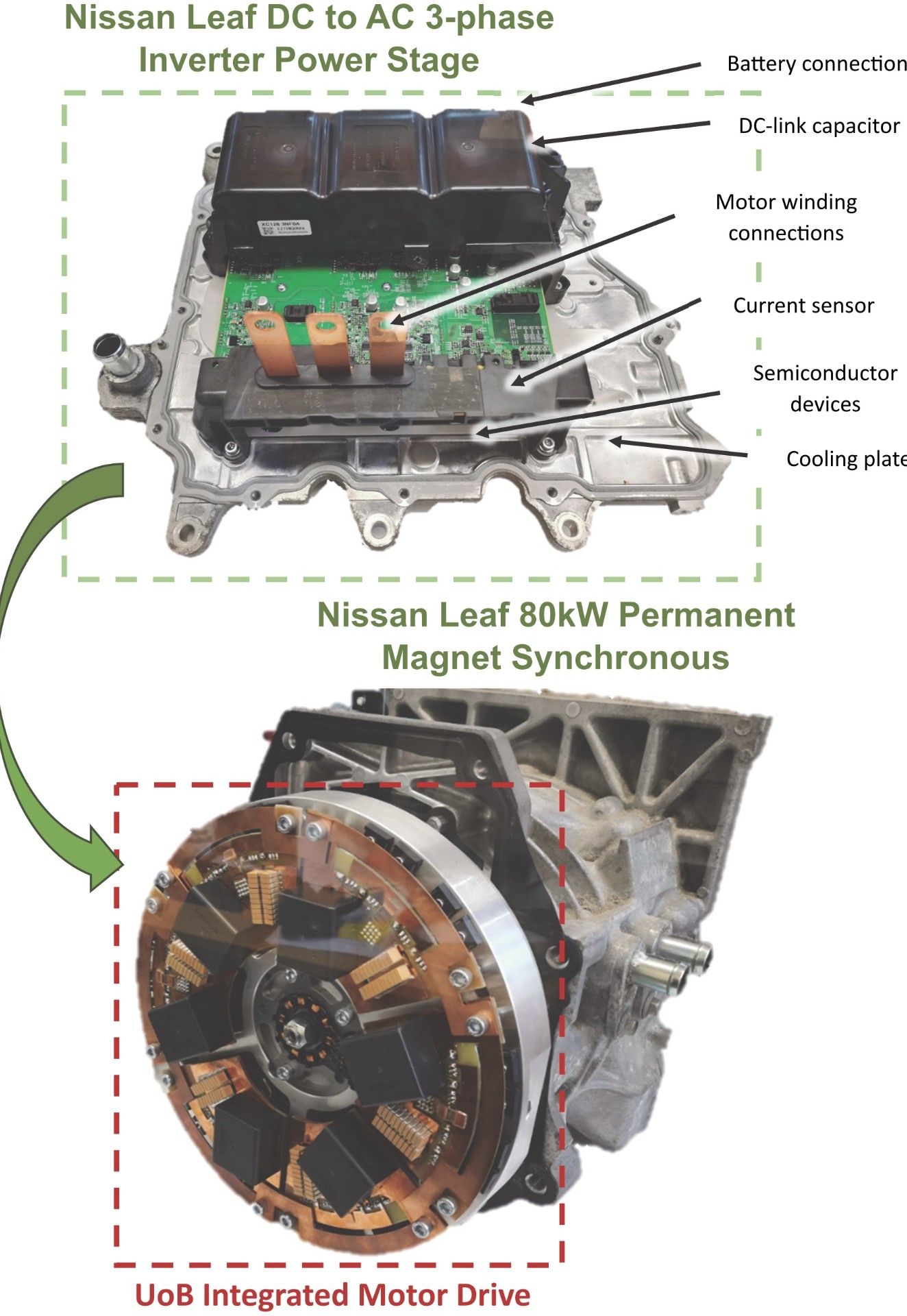The UKRI Engineering and Physical Sciences Research Council (EPSRC) has awarded the funding to a team, led by Dr Liliana de Lillo, a Royal Academy of Engineering Senior Research Fellow at the University of Nottingham. The multidisciplinary team also includes co-leads Dr Xu Deng from the University of Newcastle and Dr Nick Simpson from the University of Bristol’s School of Electrical, Electronic and Mechanical Engineering.
The research brings together world-leading experts in power electronics, electric propulsion, thermal management, machine design, materials and manufacturing.
Sustainable electrification is set to become increasingly important. The next two decades will see a massive change in the utilisation of renewable energy sources, driven by the Government’s target to deploy low-carbon resources for 95 percent of energy generation by 2030. This will lead to greater use of electric generators and at the same time, almost all propulsion, heating and cooling, and industrial processes will require an electric motor.
There is a major risk of a dramatic increase in energy loss, CO2 emissions and precious raw material usage in both the manufacture and usage of generators and electric motors, as a result of these changes.
Currently, 50 percent of the world’s electrical energy is used to power rotating motors, however, the systems they drive are typically very inefficient and contribute to a large amount of wasted energy.
By adopting a multi-disciplinary approach, this program will focus on removing technological barriers to enable true integration of power converters with electrical motors and generators to become the answer to the problem of achieving more sustainable electrification. This will also allow for more efficient and lower weight industrial and transport applications and dramatically reduce CO2 emissions from manufacturing.
From Quantum sensors and cryogenic cooling to rare earth free motors and integrated power electronic solutions, researchers from the Universities of Nottingham, Newcastle and Bristol will investigate and deliver solutions that reduce energy wastage and minimise life cycle impacts. These innovations will result in an increase in energy efficiency and reductions in environmental impact– accelerating the route to Net Zero and long-term sustainability.
Lead researcher, Dr Liliana de Lillo, from the University of Nottingham, said: “We are living through a new industrial revolution, and this is a crucial time in the quest to find sustainable solutions to electrification across all industrial sectors. Through this research programme, we want to change the way we use energy. Renewable energy sources and electrification are key enablers of the aim to achieve Net Zero greenhouse gas emissions.
“We can achieve that aim through the integration of power electronics and electric motors, using common structures and systems to greatly reduce material usage and energy consumption. The ambition is to investigate and deliver innovative solutions that reduce energy wastage and minimise life cycle impacts and the quantity of precious materials used.”
The Bristol team, which also includes Dr Andrew Hopkins, will lead work in additive manufacturing for power electronics, machines and drives (PEMD), semiconductor device characterisation in extreme environments, and integration of power electronics with electrical machines, with the aim of reducing packaging volume and increasing energy efficiency through shared cooling, structural, and functional infrastructure.
Dr Nick Simpson said: “We are looking forward to joining teams from the University of Nottingham and University of Newcastle to drive this important technology forward in pursuit of global carbon net zero targets and build a skills base through PhD training and multi-domain skills sharing to take the technology into the future.”
Dr Kedar Pandya, EPSRC Executive Director for Strategy said: “Sustainable electrification is an important part of the work EPSRC is supporting to help secure a low-carbon future and meet UK net zero targets. This research highlights how innovative new technologies and approaches will play a key role in reducing energy waste across industrial sectors and cutting carbon emissions so that we can build a greener future for us all.”
